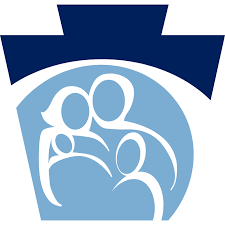Harrisburg, PA – The departments of Health and Human Services today shared initiatives and resources available for Pennsylvanians struggling with mental health or thoughts of suicide during the COVID-19 pandemic.
“As we navigate the COVID-19 pandemic and spread awareness for suicide prevention this month, I urge you to connect with your loved ones and check in on them,” Secretary of Health Dr. Rachel Levine said. “You can show your support for anyone struggling by ensuring they feel safe and supported. To those struggling, please know you are never alone and help is available.”
According to the Centers for Disease Control and Prevention (CDC), suicide is the tenth leading cause of death in the country, claiming more than twice as many lives each year as homicide. Approximately 1.4 million adults attempt suicide annually in the United States, with more than 85 percent reporting having made a suicide plan prior to their attempt. In Pennsylvania alone there were tragically 2,017 people completed suicide in 2018.
“Difficult emotions and crisis can make people feel isolated and cut off, but no one is alone, and we must always know that help and support are always available,” said Human Services Secretary Teresa Miller. “We all have a role to play in fighting that stigma around mental health and supporting people through difficult times. If you or someone you know has struggled with mental health or suicidal thoughts, we encourage you to reach out. Check in. Remind them that you are here for them. These small gestures can make an impact for someone who is struggling, and it may save a life.”
The Wolf Administration in collaboration with the General Assembly and other agencies released Pennsylvania’s Statewide Suicide Prevention Plan earlier this month. The plan, which was developed by the state’s Suicide Prevention Task Force, is a four-year strategy to reduce suicide in Pennsylvania by fighting stigma, increasing training and education on suicide and mental health, improving data collection for suicide, and supporting clinical practices and treatment to prevent suicide and help those who are struggling or in crisis know that things can and will get better. Moving forward, the task force will continue working with stakeholders at the local, regional, and state levels to support and monitor the implementation of the plan, and will begin with developing measurable, achievable action items.
DHS has received grant funding from the federal Substance Abuse and Mental Health Services Administration (SAMHSA) to expand continuity of care to prevent suicide in Pennsylvania and to capitalize on the initiatives of the Governor’s Suicide Prevention Task Force. The grant project plans to promote early identification and referral of adults at risk of suicide within adult-serving systems, to increase capacity among behavioral health providers to screen, assess, manage, and treat those at risk of suicide, to expand partnerships to support care transitions, reentry, and follow-up, and to develop a comprehensive and sustainable model for continuity of care. DHS will receive $400,000 per year for three years to implement these plans.
In order to mitigate the spread of COVID-19, public health professionals conduct case investigations and contact tracing efforts to find out where a COVID-19 case went and who they came in contact with while infectious. Then, contact tracing staff notify those close contacts of their exposure anonymously. Close contacts are told to isolate and monitor themselves for symptoms or quarantine. Through these efforts the Department of Health captured feedback from residents who were experiencing hardships with quarantining, so the department is incorporating care resources coordinators, or social workers, into the contact tracing process to provide supports as well as help us to better understand what is happening in our communities.
If you or someone you know is struggling with mental health or suicidal ideation or have in past, know that help is always available:
- The National Suicide Prevention Lifeline is 1-800-273-8255.
- The Spanish-language National Suicide Prevention Lifeline is 1-888-628-9454
- For the Mental Health Crisis Text Line: Text PA to 741741
- Support and Referral Helpline: 1-855-284-2494. For TTY, dial 724-631-5600.
- TrevorLifeline for LGBTQ individuals: 866-488-7386
- Trans Helpline: 877-565-8860
These free resources are available 24/7. If you are concerned about someone else’s well-being, these resources can help you be a life-saving assistance. No matter what you are going through, help is available.
Pennsylvanians are reminded that mask-wearing is required when visiting businesses or in any setting outside the home where social distancing is difficult. Remember: My mask protects you; your mask protects me.
The Wolf Administration stresses the role Pennsylvanians play in helping to reduce the spread of COVID-19:
- Wash your hands with soap and water for at least 20 seconds or use hand sanitizer if soap and water are not available.
- Cover any coughs or sneezes with your elbow, not your hands.
- Clean surfaces frequently.
- Stay home to avoid spreading COVID-19, especially if you are unwell.
- If you must go out, you are required to wear a mask when in a business or where it is difficult to maintain proper social distancing.
- Download the COVID Alert PA app and make your phone part of the fight. The free app can be found in the Google Play Store and the Apple App Store by searching for “covid alert pa.
Updated Coronavirus Links: Press Releases, State Lab Photos, Graphics
- Daily COVID-19 Report
- Press releases regarding coronavirus
- Latest information on the coronavirus
- Photos of the state’s lab in Exton (for download and use)
- Coronavirus and preparedness graphics (located at the bottom of the page)
- Community preparedness and procedures materials
- Map with the number of COVID-19 cases
All Pennsylvania residents are encouraged to sign up for AlertPA, a text notification system for health, weather, and other important alerts like COVID-19 updates from commonwealth agencies. Residents can sign up online at www.ready.pa.gov/BeInformed/Signup-For-Alerts.


